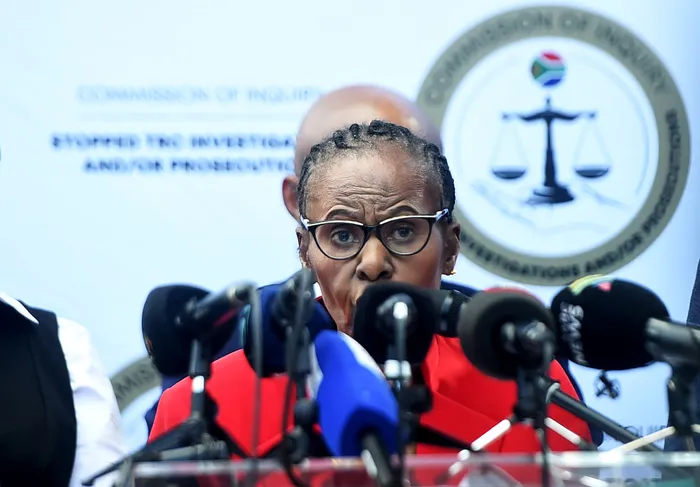
Advocate Ishmael Semenya.
Image: Brenda Masilela/ANA
ADVOCATE Ishmael Semenya’s past involvement with the National Prosecuting Authority (NPA) was cited as the key reason he should not be the evidence leader of the Judicial Commission of Inquiry into apartheid-era crimes.
The long awaited commission, chaired by retired judge Sisi Khampepe, was expected to get underway on Monday before the NPA raised concerns about Semenya at the 11th hour. The commission's investigating the political suppression of investigations and prosecutions related to TRC cases was established by President Cyril Ramaphosa in May in response to pressure from families demanding justice for apartheid-era crimes.
In their application for Semenya's recusal, the parties argued that his previous involvement in prosecutorial matters involving the NPA would cloud his judgement.

Justice Sisi Khampepe, chair of the newly established Judicial Commission of Inquiry into apartheid-era crimes, has postponed the sitting of the commission to November 26 following a recusal application against Advocate Ishmael Semenya.
Image: Itumeleng English / Independent Newspapers
Advocate Kgomotso Moroka said: "It may well be that we are going to move on to an application for recusal. We are not blowing hot and cold. We are clear that our objection indicates that the submissions have taken the objection further. If I might be allowed, we agree that it is the decision of the Commission that must be upheld. The decision, in terms of rule 3.1, says the Commission is empowered to make decisions about who calls whom and when, and it is not Mr Semenya. Therein lies our objection."
Advocate Makhosi Gwala for the NPA said the prosecutorial body took issue with Semenya, who was a central figure in the NPA policy, as one of its advisors.
"Our issue is that once upon a time, advocate Semenya SC, advised the NPA on the prosecution policy. We now know that this was set aside because it was unconstitutional. The NPA is unsettled by the fact that the very same policy is said to have brought about the interference in the prosecution of the Apartheid-era crimes. That policy is central to these proceedings," said Moroka.
Judge Khampepe postponed Monday's sitting to November 26.
Reacting to the delay, and speaking on behalf of the Simelane family, Human Settlements Minister Thembi Simelane described the postponement as unfortunate.
Simelane, whose sister Nokuthula Simelane was abducted in 1983, said her family was anxious to know where her sister was buried.
"We are representing the elders. My mother is 85 years old, I was invited to come and share the experience. But here we are, and we have adjourned until further notice. If the pace can be picked up, that would be much appreciated. What angers me more is that the State did not discover the registration of Advocate Semenya this morning. They knew, and they could have approached the chairperson and the Commission and filed their papers if they were not in agreement," she said.
Cape Times